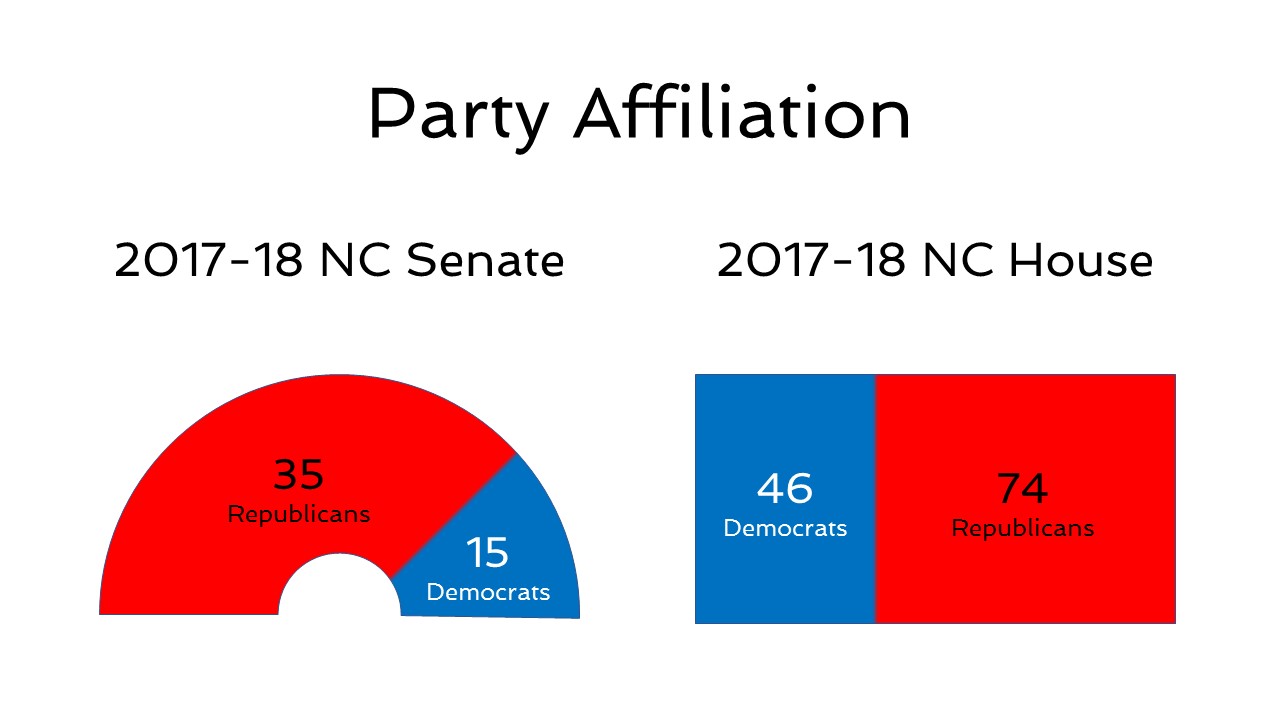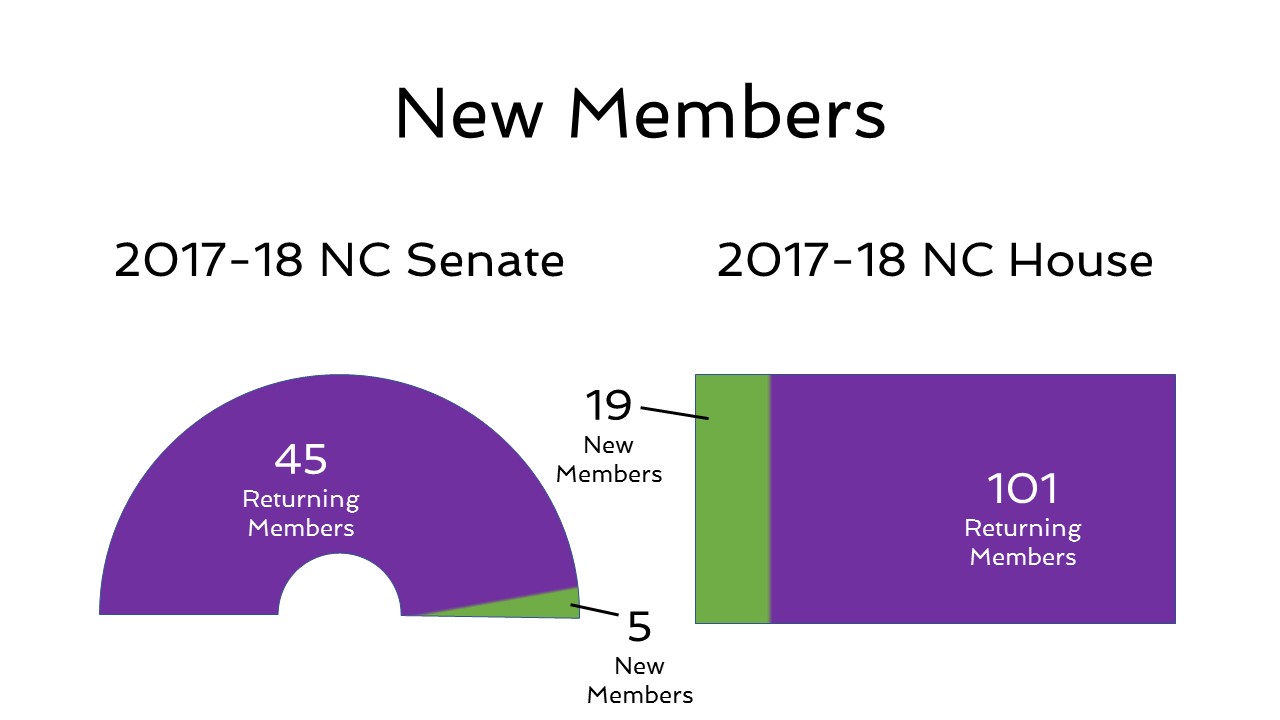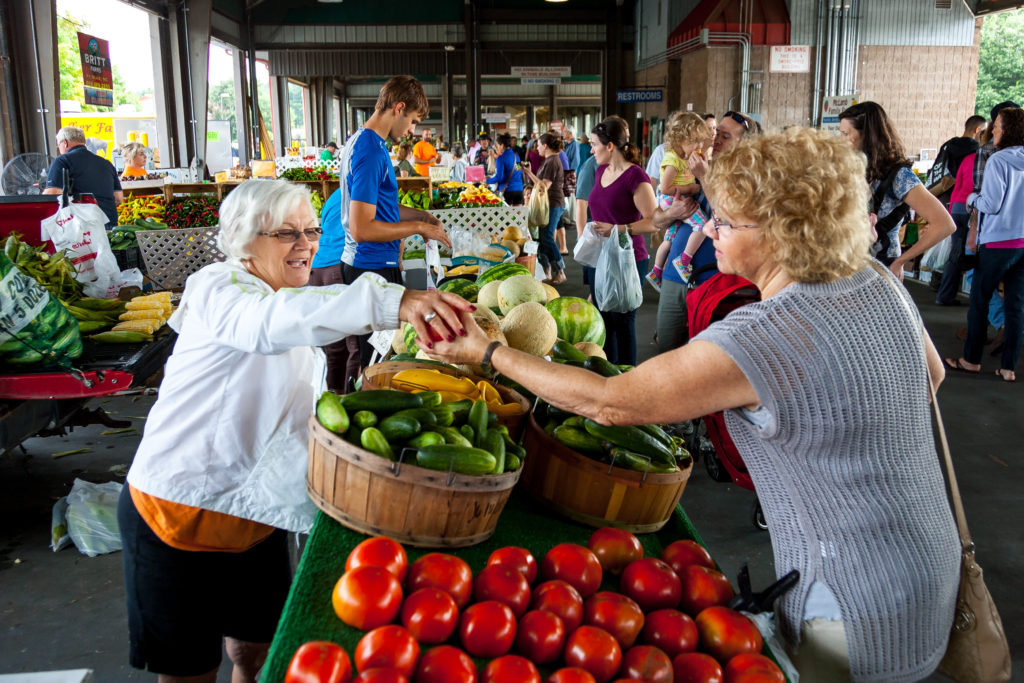Now that spring has officially sprung, there’s no better time to support North Carolina agriculture by heading to your local farmers market or roadside stand to do a little grocery shopping. You’ll find fresh, local, and delicious produce without breaking the bank — in fact, you might even find some items are cheaper! Plus, you’ll get the chance to talk with local farmers and find out more about the food you’re buying.
 Legal / State Government
Legal / State Government
For more than two decades, two out-of-state trial lawyers have made millions suing farmers across the country. Four years ago, they came to North Carolina and started picking fights between about 90 hog farms and their neighbors, alleging the farms were nuisances. The lawyers told the neighbors they could recover substantial damages far exceeding the value of their homes. They didn’t ask the farmers to address the alleged nuisances—they just asked for money.
Interestingly, a judge kicked these lawyers off the cases, finding there was “credible undisputed evidence” they had violated North Carolina’s legal ethics rules as they recruited clients. Nevertheless, the cases were allowed to continue with new attorneys.
Most reasonable people understand there are some aspects of farming that are unpleasant. You can’t raise animals without some odor; you can’t transport farm products without trucks; and you can’t work the soil without occasionally stirring up dust. Recognizing this reality, North Carolina’s right-to-farm statute provides farmers with a limited defense against some nuisance lawsuits. But the right-to-farm law is silent about the amount of damages that can be recovered in nuisance actions.
In 2015, a federal judge considering these cases ruled that North Carolina’s nuisance law isn’t clear on damages. If this isn’t clarified, more lawsuits will be filed, pitting neighbor against neighbor. That means more money for the lawyers.
That’s why a bill was introduced last week in the N.C. House of Representatives. House Bill 467, introduced by Reps. Jimmy Dixon, John Bell, Ted Davis and David Lewis, would limit the compensatory damages in nuisance cases to the market value of the plaintiff’s property. Basically, if a nuisance reduces the value of your home by $25,000, you can be awarded up to $25,000.
The bill doesn’t prevent a neighbor from recovering damages in a legitimate nuisance suit. It cuts off the incentive for lawyers to use farmers and their neighbors to grow their bank accounts.
Farmers care about the communities they live in. Many times, they work with their neighbors to address problems and create solutions without unnecessarily wasting resources settling complaints in court. House Bill 467 is an assurance to all farmers that they can farm their land without the fear of repeated litigation and without the specter of catastrophic damages and legal fees.
The General Assembly should quickly pass H. 467.
The following commentary is by North Carolina Farm Bureau President Larry Wooten, first published in the Spring 2017 issue of NC Field and Family.
Quality, affordable and transparent healthcare system needed
 America’s healthcare system is in need of intensive care, and it will take the best efforts of Congress and the new administration to save the nation’s sickest patient: the health insurance system.
America’s healthcare system is in need of intensive care, and it will take the best efforts of Congress and the new administration to save the nation’s sickest patient: the health insurance system.
The future of the Patient Protection and Affordable Care Act is on the minds of most Americans. Farm Bureau members in every county, and in each income level, are impacted by our nation’s dysfunctional healthcare system. While based on good intentions, the Affordable Care Act does not work for all Americans. We’re looking to Congress to fix this law.
The current healthcare system provides little competition or checks and balances for runaway prices. In 2016, annual premiums for an average family reached $18,142, according to the National Conference of State Legislators. The average price increase for 2017 was 25 percent. At best, this system is unsustainable.
 Legal / State Government
Legal / State Government
News flash: Farmers own a lot of land. In fact, they own about 8.3 million acres in North Carolina, which is more than a quarter of the state and is roughly the size of Maryland and Delaware combined. It’s not surprising, then, that they pay attention when the General Assembly takes up bills relating to eminent domain. Last week the N.C. House of Representatives passed an eminent domain bill, H. 3, by a large bipartisan vote. It’s a good bill, so let’s use this opportunity to briefly talk about eminent domain and why H. 3 is needed.
 State Government
State Government
The North Carolina General Assembly gaveled in its 2017-18 long session a couple weeks ago, but so far the action has mainly been getting bills filed and holding a few committee meetings. As state legislators prepare to roll up their proverbial sleeves, let’s take a moment to talk about a few issues we’ll be watching this session.
 Agriculture / Education
Agriculture / Education
The “Future of Farming” immediately conjures thoughts of auto-piloted drones, advanced self-driving tractors and maybe even robots working the fields. While that sounds cool and great advances have been made in agricultural technology, the reality is that the future of farming lies in our young farmers.
Farming is vital to our nation’s health and security, and remains an in-demand career. In fact, young farmers have never been more essential to the future success of our nation. That’s primarily because nearly 25 percent of all farmers are over 55 years old. Think about that. Within the next 20 years, we could have a major drop off in active, full-time farmers at the same time that food demand and world population will be higher than ever before.
For those reasons and many more, North Carolina Farm Bureau works tirelessly to discover and prepare agricultural leaders to succeed in the workplace and on the farm, and to become knowledgeable advocates for agriculture. We understand that a greater focus must be given to our future farmers and agriculture leaders, and that resources and creativity are needed to keep the future of agriculture strong and steadfast. That’s why we continue to develop and expand our Young Farmer and Ranchers (YF&R) Program.
Last week, the 2017-18 General Assembly opened this year’s session, and in a few weeks they will dig in on their new legislative agenda. As you probably know, Republicans hold a 74-46 majority in the NC House and a 35-15 majority in the NC Senate. In the NC House, there are 19 new members, seven Democrats and 12 Republicans; in the NC Senate, there are five new members, all of whom are Republicans.
 Demographic information is important to understanding the composition of the legislature. Instead of looking at the usual race or gender breakdown, we decided to take a look at another bit of demographic information: occupation. Based on NC House and NC Senate Clerk Reports, the leading occupations are attorney, business owner, real estate broker, business executive, and consultant.
Demographic information is important to understanding the composition of the legislature. Instead of looking at the usual race or gender breakdown, we decided to take a look at another bit of demographic information: occupation. Based on NC House and NC Senate Clerk Reports, the leading occupations are attorney, business owner, real estate broker, business executive, and consultant.
So how many farmers are there in the legislature?
 Economy
Economy
The holidays are finally here, and that mean many of you either already have or soon will be decorating your Christmas Tree. What you may not realize is just how lucky we are here in North Carolina to have a large, thriving community of Christmas tree growers. In fact, North Carolina Christmas Trees are so famous they have been selected as the White House Christmas Tree a dozen times since 1970. So this week, in the spirit of the season, we’re lighting up the NC Christmas Tree Industry!


